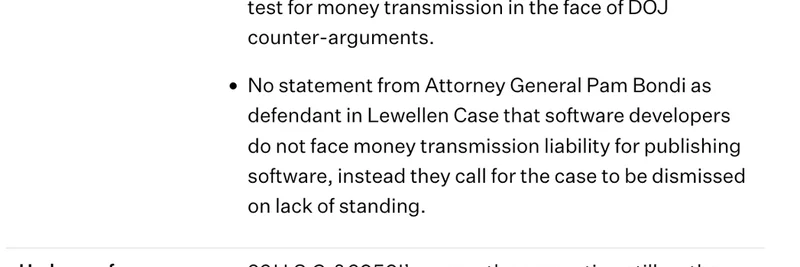Coin Center, the leading think tank on cryptocurrency policy, just dropped a scorecard reviewing the last six months of crypto developments under the new administration and the 119th Congress. Shared via a tweet from Neeraj K. Agrawal, Coin Center's communications director, this update highlights some solid wins but also flags ongoing struggles, especially for developers, privacy, and self-custodial software. For those in the meme token world—where decentralization and quick, anonymous trades are king—these shifts could reshape how projects launch, trade, and stay compliant.
The Wins: Progress in Congress and SEC
Let's start with the good stuff. Congress has been surprisingly active, passing key bills that could benefit meme token creators and users. The CLARITY Act, which sorts out jurisdiction between the CFTC and SEC, includes carve-outs for non-controlling developers and infrastructure providers. This means if you're building a meme token on a decentralized protocol without holding the reins, you might avoid heavy regulatory scrutiny. Attached to it is the Blockchain Regulatory Certainty Act (BRCA), which passed the House with bipartisan support and is pushing for Senate action. It's all about giving developers clarity under money transmission laws, reducing the fear of accidental non-compliance.
Then there's the GENIUS stablecoin bill, now enacted, which sets federal rules for stablecoin issuers but spares non-controlling entities. For meme ecosystems that often integrate stablecoins for liquidity, this is a relief—no extra burdens on decentralized players.
Over at the SEC, things are looking up too. They've launched Project Crypto to draft clear rules on tokenizing traditional assets and enabling peer-to-peer transfers. Commissioner Hester Pierce even stepped up to defend financial privacy, calling out ambiguities in laws like the Bank Secrecy Act. In a space where meme tokens thrive on viral, borderless hype, clearer rules could make it easier to launch and trade without constant SEC headaches.
One standout over-performance? The repeal of the "broker" definition from the 2021 Infrastructure Bill via the Congressional Review Act, with White House backing. Plus, OFAC rescinded its Tornado Cash designation—a big win for privacy tools that meme traders sometimes use to keep transactions under wraps.
The Challenges: DOJ's Stance on Developers
Not everything's rosy, though. The Department of Justice (DOJ) is still going after developers, which hits hard in the meme token scene where open-source tools and privacy mixers are common. Tornado Cash developers were found guilty of unlicensed money transmission, and Samourai Wallet devs pleaded guilty. These cases treat privacy-enhancing software like coinjoins as money transmission services, even without "total independent control" over funds—a key point from FinCEN's 2019 guidance that the administration hasn't clarified.
This "regulation by prosecution" approach chills innovation. Imagine coding a fun meme token launcher or a mixing tool, only to face jail time. A lawsuit by Michael Lewellen seeking clarity on developer liability was met with dismissal attempts by Attorney General Pam Bondi, leaving everyone in limbo.
For meme tokens, often born from grassroots devs and relying on self-custody wallets, this uncertainty could slow down new projects or push them offshore.
Lingering Questions: Financial Surveillance and the PWG Report
The President's Working Group (PWG) report offers mixed signals, supporting market structure bills like CLARITY but hedging on surveillance. The controversial 6050I rule, requiring reporting of crypto transactions over $10,000 with personal details, sticks around, potentially expanding warrantless tracking. FinCEN's mixer rulemaking, which flags mixing as a money laundering red flag, is still on the table, threatening tools that protect user privacy in meme trading frenzies.
The PWG also floats new Bank Secrecy Act categories for digital assets, which might overregulate without being tech-neutral. And the IRS's 2023 guidance on taxing block rewards remains, hitting miners and stakers who support meme token networks.
In the optimistic bucket, the SEC's pivot to gathering info for sensible rules is promising, but pessimistically, the lack of change in DOJ prosecutions and unclear FinCEN stances keep developers on edge.
What This Means for Meme Tokens
Meme tokens, fueled by community hype and decentralization, stand to gain from clearer rules on tokenization and stablecoins. But threats to privacy and developer freedom could stifle the wild, innovative spirit that makes them pop. If you're a blockchain practitioner eyeing meme projects, keep tabs on these policies—they'll dictate how freely you can build, trade, and protect your assets.
For the full scoop, check out Coin Center's report here. As the space evolves, staying informed is key to navigating the regulatory waves.


